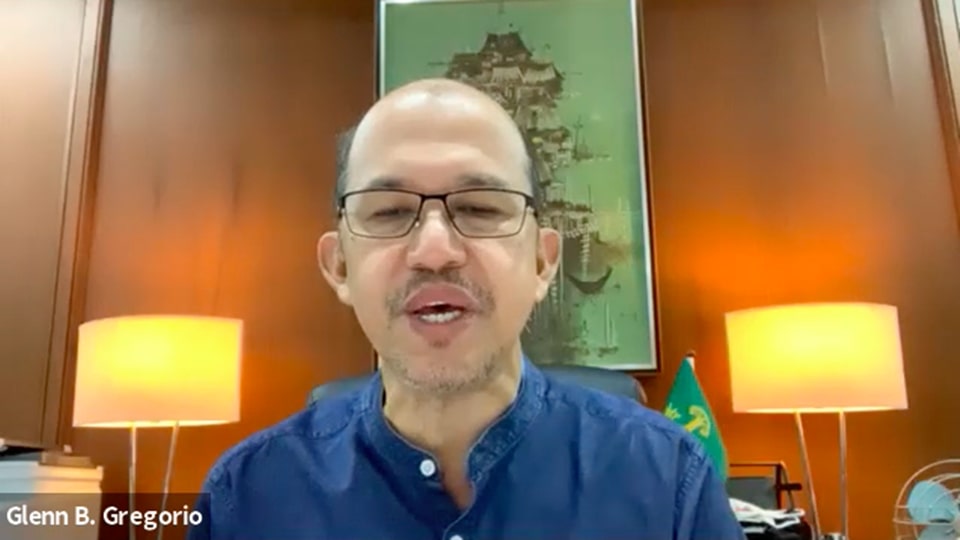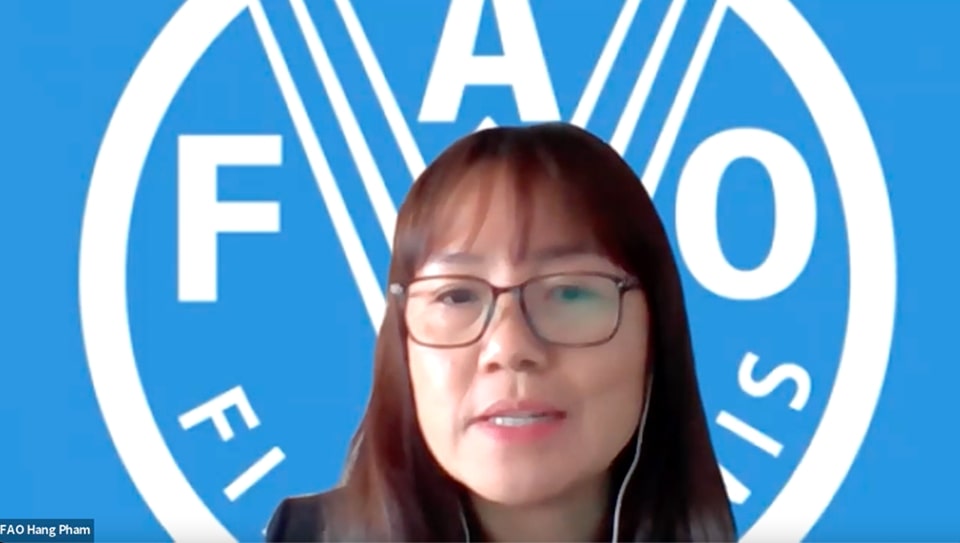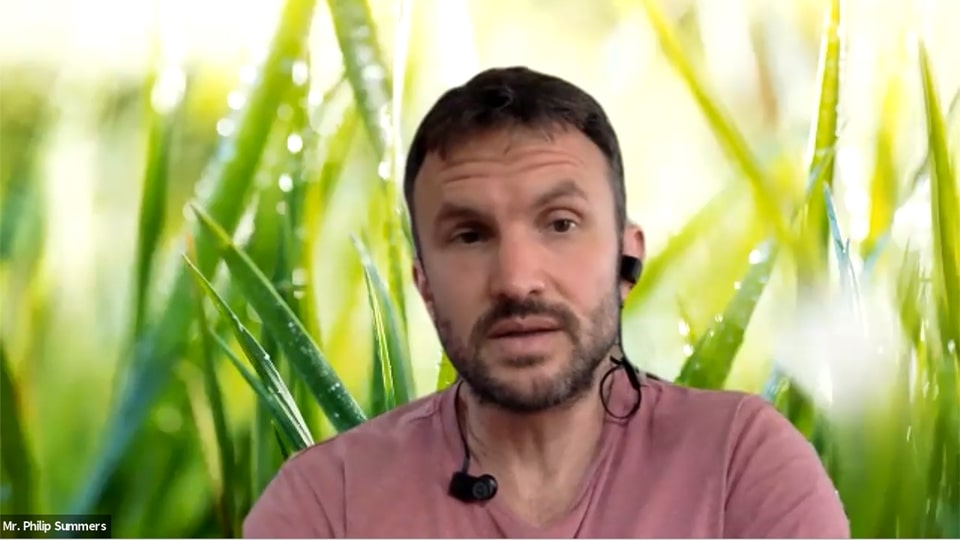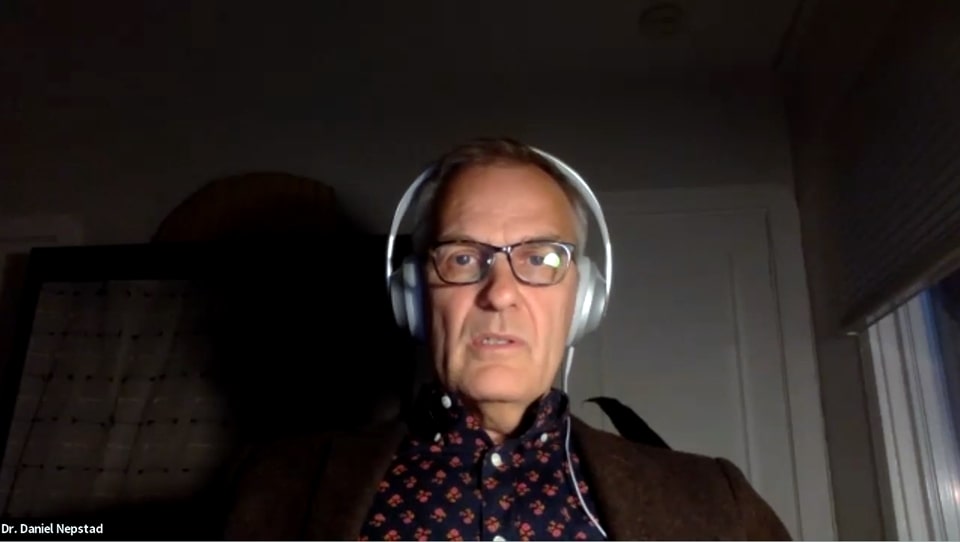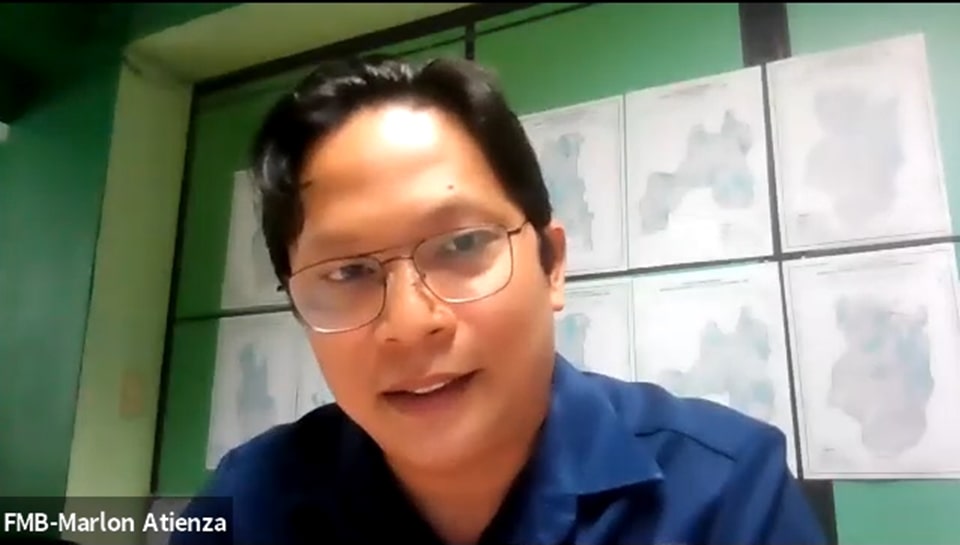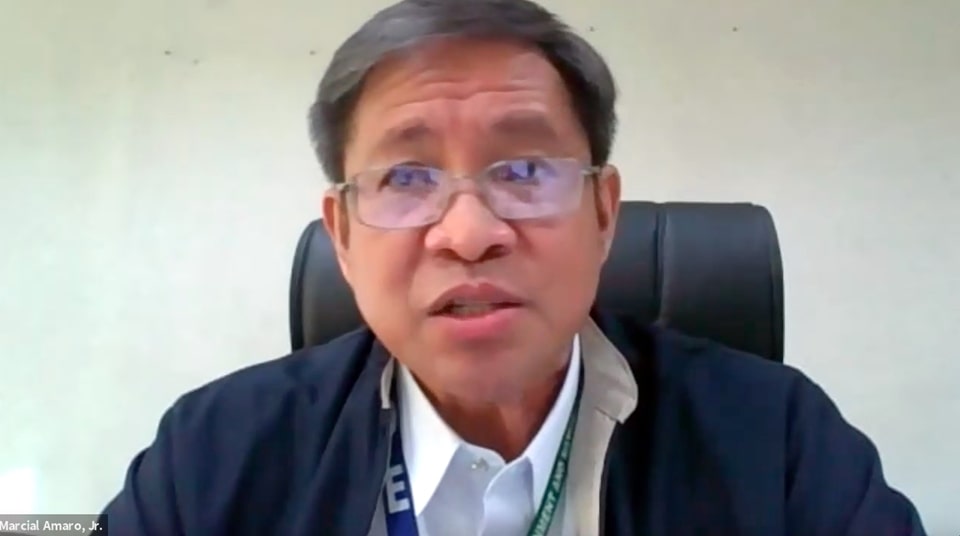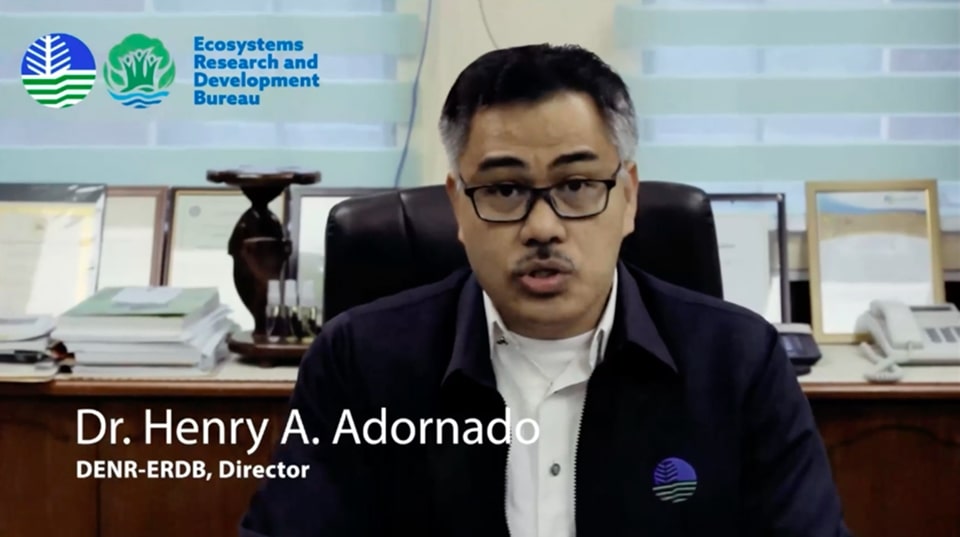Recognizing the need to discuss a holistic approach and collaborative strategy to mitigate the effects of climate change for sustainable growth and development gave rise to the forum on “Jurisdictional Sustainability Approach for Climate Change Initiatives in the Forestry and Natural Resources Sector” held on 18 February 2021 via Zoom and Facebook. The forum was organized by the Southeast Asian Regional Center for Graduate Study and Research in Agriculture (SEARCA), Food and Agriculture Organization of the United Nations (UN FAO), Department of Environment and Natural Resources -Forest Management Bureau (DENR-FMB), and DENR-Ecosystems Research and Development Bureau (ERDB).
In his welcome remarks, SEARCA Director Dr. Glenn B. Gregorio said the forum is “very much aligned with SEARCA’s 11th Five-Year Plan with the overarching theme of Accelerating Transformation Through Agricultural Innovation (ATTAIN), where we aim to collaborate with the key players from the academe, the industry and the government to bridge the gaps which burden our agriculture producers, particularly our farmers and our farming communities.” He added that one of SEARCA’s priority areas is enhanced agricultural and rural development (ARD) towards climate resilience.
Ms. Hang Thi Thanh Pham, FAO Representative ad interim, said the forum is timely. She stressed that “More than ever, we need new approaches to cope with climate change as its adverse impacts are escalating at unprecedented scale.” She said “unless global greenhouse gas emissions fall by 7.6 percent each year in the coming decade, the world will not be able to meet the Paris Agreement goals.” This sheds light on the importance of an innovative approach such as Jurisdictional Sustainability Approach. As emphasized at the end of Ms. Pham’s message, the joint efforts of all stakeholders will drive the country’s goals towards realizing zero hunger by 2030 and zero emissions by 2050.
Through the forum, SEARCA and its collaborators highlighted the Jurisdictional Sustainability Approach to discuss its concept, principles, and relevance to explore areas for collaboration for its operationalization in the Philippines. Four distinguished speakers were invited to share their knowledge on the topic.
Mr. Philip Summers, an international and independent consultant on climate change based in Australia, presented why a country should consider a nesting system. He described the nesting approach as a way projects align the measurement of their performance and means of implementation to national systems. He also shared factors to consider in deciding on the approach most appropriate to a country. He said identifying the appropriate strategy for an area would depend on the country’s political economy, financial strategy for Reducing Emissions from Deforestation and Forest Degradation (REDD+), and private sector engagement. Mr. Summers emphasized that the concept of nesting is at its early stage of development and it is an evolving process. He clarified though that, through its guiding principles, many countries are adopting the nesting approach with a focus on forest carbon.
Dr. Daniel Nepstad, President and Founder of Earth Innovation Institute, discussed the definition of Jurisdictional Sustainability, Jurisdictional REDD+ and the emerging forest carbon market, a retrospective on its progress, and the future of the approach. He shared how jurisdictional sustainability is a large-scale sustainable development that is climate-friendly, equitable, and provides social inclusion across large landscapes. He said “It is taking sustainability to scale.” He also shared some promising deforestation data trends in some jurisdictions or “forest champions.”
Dr. Nepstad expressed that there needs to be greater, more sustained, more creative support for jurisdictions since systematic changes need time and support across political cycles.” He also stressed that “We are at a really exciting transition point right now where the market we are waiting for is starting to appear, the voluntary market could potentially be very agile and could mobilize significant funding to help those jurisdictions that want to make this transition.”
Focusing on the Philippine context, Forester Marlon M. Atienza, Supervising Forest Management Specialist and Chief, Forest Plans and Standards Section, DENR-FMB Forest Policy, Planning and Knowledge Management Division, presented the status of the Philippine forest resources. He gave an overview of the Philippine forest cover as well as the country’s policies and notable and emerging forestry initiatives. For. Atienza shared his insights on the discussion on Jurisdictional Sustainability. He shared that the government is open to all innovations and new practices, and they will explore this new approach for sustainable development.
Contextualizing the discussion to a pilot case in the Philippines, Dr. Rico C. Ancog, Associate Professor at the University of the Philippines Los Baños-School of Environmental Science and Management (UPLB-SESAM) and SEARCA Operations Consultant for Emerging Innovation for Growth, discussed the baseline assessment for Jurisdictional Sustainability in Palawan, Philippines. He mentioned that this has been developed by the SEARCA team under the UN FAO-funded project “Developing on an operational example of a jurisdictional-level platform for Palawan, Philippines.”
Dr. Ancog introduced the project on Jurisdictional Sustainability Approach being implemented by SEARCA and provided an overview on the Forestry and Natural Resources of Palawan. He also discussed how jurisdictional approach is defined in Palawan’s context, its potential benefits, and ways forward for the study. He said “The time is ripe, but making this work is another challenge and hopefully in the next step we will be able to really provide an example of a pilot, as to how jurisdictional approach is to be designed and to be implemented in a case of a province in the Philippines.”
In his message, Forester Marcial C. Amaro, Jr., DENR Assistant Secretary for Policy, Planning and Foreign Assisted and Special Projects and OIC-Director of DENR-FMB, he remarked that indeed the dialogue on emerging approaches will open opportunities for public and private partnerships in managing forest lands. He said this will prove to be helpful as they are implementing the REDD+ Roadmap, which will serve as a guide to decision- and policymaking bodies in allocating responsibilities among the different stakeholders and achieving transparency in terms of benefits that may arise from implementing the REDD+ activities.
Dr. Henry A. Adornado, DENR-ERDB Director, welcomed the approach, saying “While the approach sounds fairly new, DENR has similar endeavors. Majority of our collaborations are done through inter-agency collaborations, linkages, and coordination with every possible stakeholder, including the private sector, and in harmony with other government agencies.” He also said DENR is constantly looking for possible solutions to the adverse effects of climate change, and they are hopeful to see what is Jurisdictional Sustainability Approach and how it can be applied to advancing sustainable environment and natural resources management.
As emphasized in the presentations, the move towards Jurisdictional Sustainability will surely entail a collaborative effort from the various stakeholders. Ms. Imelda V. Bacudo, a Coordinator of the ASEAN Climate Resilience Network who is also a member of the SEARCA project team, said “This is the first of our initiatives to understand the approaches available for us in order to really reach our forest management targets.
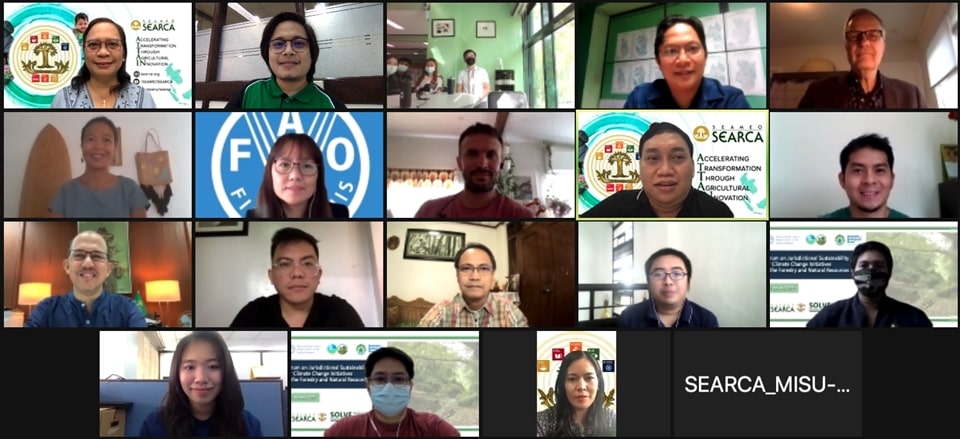 A screenshot of the participants of the Forum on Jurisdictional Sustainability Approach and its Potential to Further Climate Change Initiatives in the Forestry and Natural Resources Sector.
A screenshot of the participants of the Forum on Jurisdictional Sustainability Approach and its Potential to Further Climate Change Initiatives in the Forestry and Natural Resources Sector.
